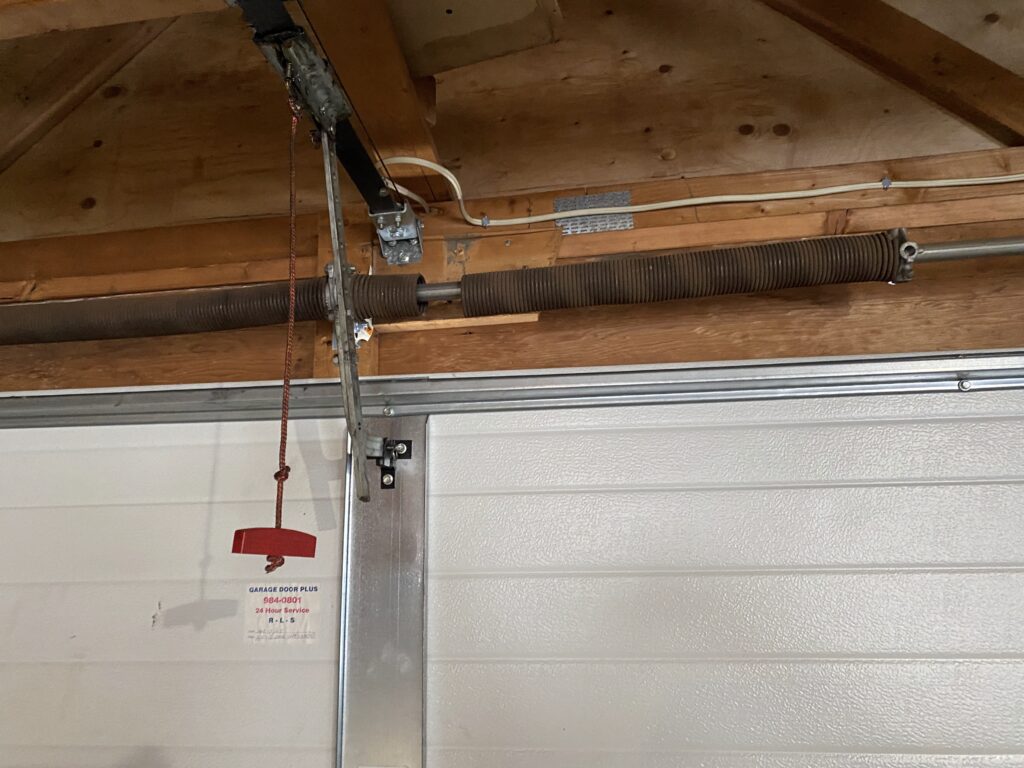Garage Door Spring Replacement: What You Need to KnoW
Garage doors are an essential part of our homes, providing security, convenience, and curb appeal. However, like any mechanical system, they require maintenance and occasional repairs. One of the most critical components of a garage door is its springs, which bear the weight of the door and make it easy to open and close. When these springs break, it can render your garage door inoperable, leaving you frustrated and potentially stranded. In this blog post, we’ll explore the different types of garage door springs, why they break, and why it’s crucial to rely on professionals for spring replacement.
Types of Garage Door Springs
Garage door springs come in two main types, each serving a crucial role in the door’s operation:
1. Torsion Springs
Torsion springs are mounted above the garage door and use torque to lift and lower the door. These springs are known for their durability and efficiency. Some common variations include:
Standard Torsion Springs: Used in residential doors, mounted on a metal shaft above the door.
Early-Set Torsion Springs: Placed in the middle of the torsion shaft.
Steel Rolling Door Torsion Springs: Found in commercial and industrial doors.
Torque-Master Torsion Springs: Enclosed in a shaft for added safety.
2. Extension Springs
Extension springs run along the sides of the garage door tracks and stretch when the door is in motion. These springs come in different types, including:
Open-Loop Extension Springs: Easy to replace but less durable.
Double-Loop Extension Springs: Stronger than open-loop springs.
Clipped-End Extension Springs: The most durable option, commonly used for heavy doors.

Why Do Garage Door Springs Break?
Garage door springs undergo a lot of tension and wear over time, leading to eventual failure. Here are some common reasons why they break:
Normal Wear and Tear – Springs have a limited lifespan, typically ranging from 10,000 to 20,000 cycles. Frequent usage accelerates wear.
Rust and Corrosion – Rust weakens the metal, making it more prone to breaking.
Improper Maintenance – Lack of lubrication and maintenance can shorten the lifespan of the springs.
Poor Installation – Incorrect installation can cause uneven tension and premature failure.
Temperature Fluctuations – Extreme cold or heat can weaken the springs over time.
Why Hire Professionals for Garage Door Spring Replacement?
Replacing a garage door spring may seem like a simple DIY project, but it is a task best left to professionals. Here’s why:
1. Safety Concerns
Garage door springs are under immense tension. If not handled correctly, they can snap and cause serious injuries. Professionals have the right tools and experience to handle the job safely.
2. Proper Installation
A professional ensures that the correct type and size of spring is used for your garage door. Improper installation can lead to unbalanced movement, increasing wear on other components.
3. Time and Convenience
Hiring a professional saves you time and effort. They can quickly and efficiently replace the springs, restoring your garage door to full functionality.
4. Warranty and Longevity
Professional services often come with warranties, ensuring that you get a quality replacement that lasts longer.
Garage door springs play a critical role in the smooth operation of your garage door. Understanding the types of springs and why they break can help you take preventive measures. However, if you find yourself dealing with a broken spring, it’s always best to rely on professionals for safe and effective replacement. At Fast Garage Door Repair, we offer expert garage door spring replacement services to keep your door functioning smoothly. Contact us today for fast and reliable repairs!
